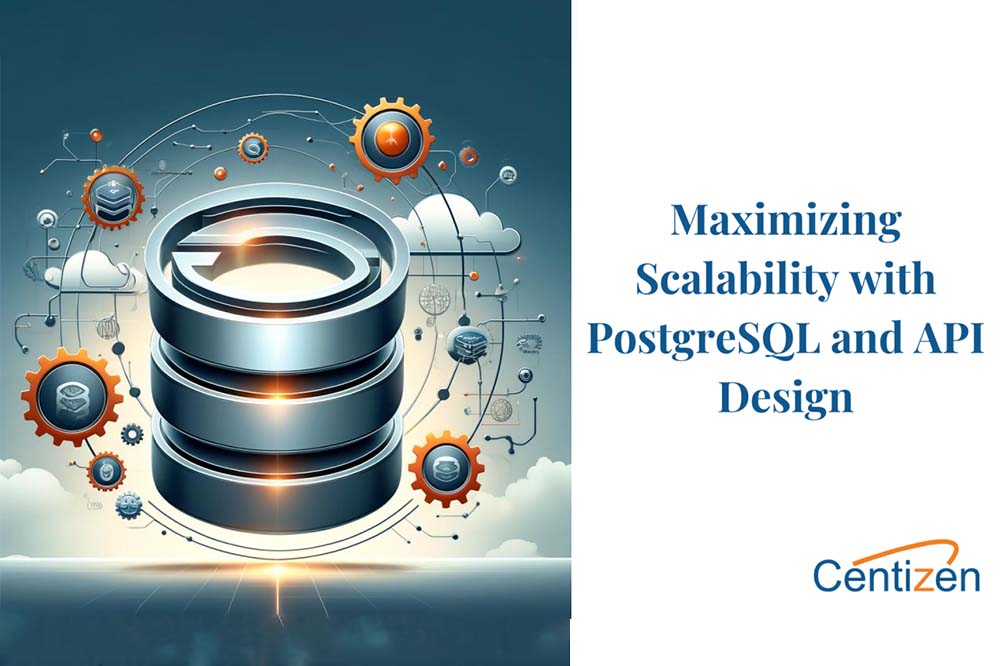Leveraging PostgreSQL and Robust API Design for Scalable Applications

In the modern landscape of software development, choosing the right database and designing a robust API architecture are pivotal decisions that can significantly influence the performance, scalability, and success of applications. PostgreSQL, an advanced open-source relational database, combined with a well-designed API, provides a solid foundation for building scalable and efficient software solutions. In this article, we’ll explore the strengths of PostgreSQL and best practices in API architecture to help developers harness their full potential.
Why choose postgreSQL?
1. Advanced data management capabilities
- Data integrity: PostgreSQL supports advanced data types and a multitude of integrity constraints ensuring that data remains accurate and consistent without sacrificing performance.
- Rich feature set: With support for JSON data types, full-text search, and indexing options, PostgreSQL can handle complex queries and vast datasets efficiently.
2. Performance and scalability
- Concurrency: PostgreSQL uses Multi-Version Concurrency Control (MVCC) to handle high concurrency, allowing multiple users to access the system simultaneously without locking the database.
- Read scalability: Features like replication and partitioning enable PostgreSQL to distribute data across several machines, enhancing read operations and system availability.
3. Extensibility
- PostgreSQL supports custom functions written in various programming languages, including Python and JavaScript, which can be particularly useful for complex data processing directly within the database.
API architecture considerations
When building APIs that interact with a PostgreSQL database, several architectural considerations can ensure efficiency and scalability:
1. Restful design
- Statelessness: Each API call should not depend on the state of other calls, which simplifies scaling as any server can handle any request.
- Resource orientation: Organize API around resources (e.g., users, products) and use HTTP verbs (GET, POST, PUT, DELETE) to operate on these resources.
2. Security practices
- Authentication and authorization: Protect your APIs using standards like OAuth to ensure that only authorized users can access your data.
- Data validation: Robust input validation to prevent SQL injection and other forms of attacks, ensuring the integrity of your PostgreSQL database.
3. Performance optimization
- Efficient query design: Optimize your SQL queries for performance; avoid SELECT * and use proper JOINs to reduce database load.
- Caching strategies: Implement caching mechanisms to store frequently accessed data, reducing the number of times the API needs to query PostgreSQL.
4. Scalability
- Load balancing: Distribute requests across multiple API servers to balance the load, ensuring no single point of overload.
- Database connection pooling: Use connection pooling to manage database connections efficiently, reducing overhead and improving response times.
Integrating postgreSQL with API
To integrate PostgreSQL with your API effectively:
- Use ORM libraries: Libraries like Sequelize (for Node.js) or Django ORM (for Python) can simplify database interactions and ensure your queries are optimized.
- Monitor and log: Continuously monitor the API and database performance to identify bottlenecks or slow queries.
- Regular updates: Keep your PostgreSQL database and API platform updated to leverage new features and security enhancements.
Conclusion
Combining PostgreSQL with a well-thought-out API architecture can significantly enhance the functionality and scalability of applications. By adhering to best practices in both database management and API design, developers can build robust, secure, and efficient systems that stand the test of time.
Explore Centizen Inc’s comprehensive staffing solutions, custom software development and innovative software offerings, including ZenBasket and Zenyo, to elevate your business operations and growth.
Centizen
A Leading IT Staffing, Custom Software and SaaS Product Development company founded in 2003. We offer a wide range of scalable, innovative IT Staffing and Software Development Solutions.
Contact Us
USA: +1 (971) 420-1700
Canada: +1 (971) 420-1700
India: +91 63807-80156
Email: contact@centizen.com
Our Services
Products
Contact Us
USA: +1 (971) 420-1700
Canada: +1 (971) 420-1700
India: +91 63807-80156
Email: contact@centizen.com






